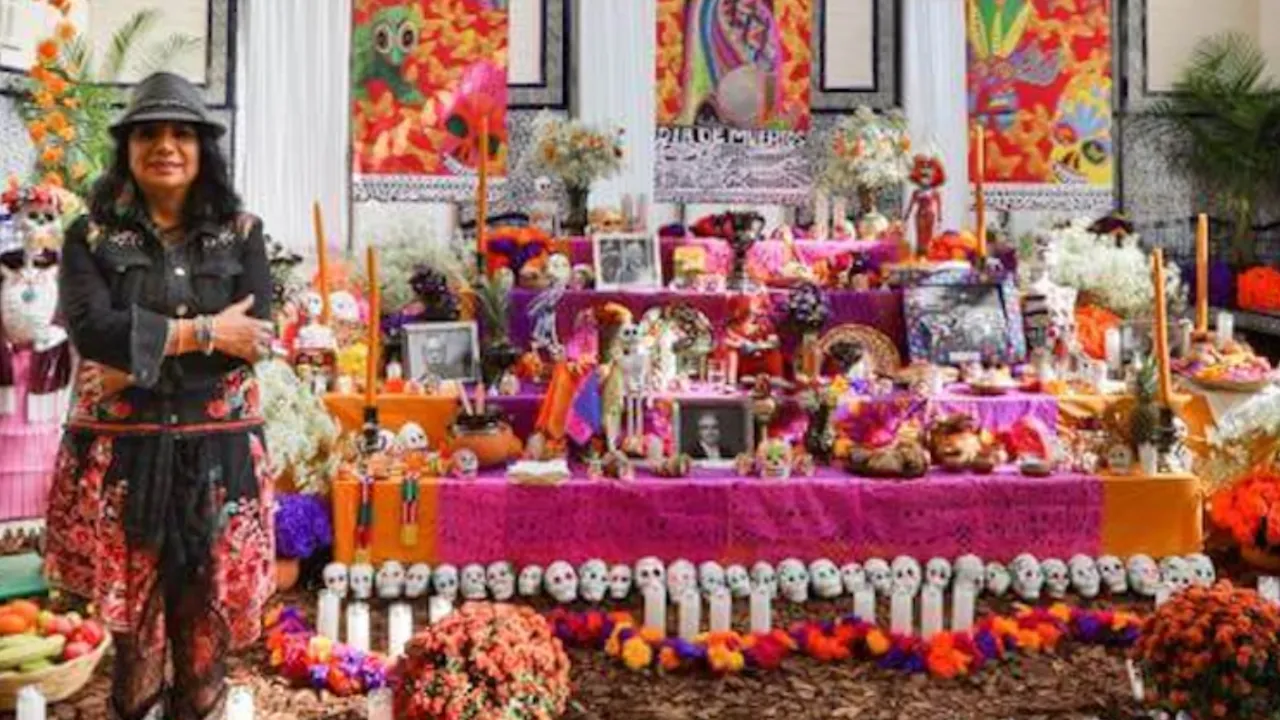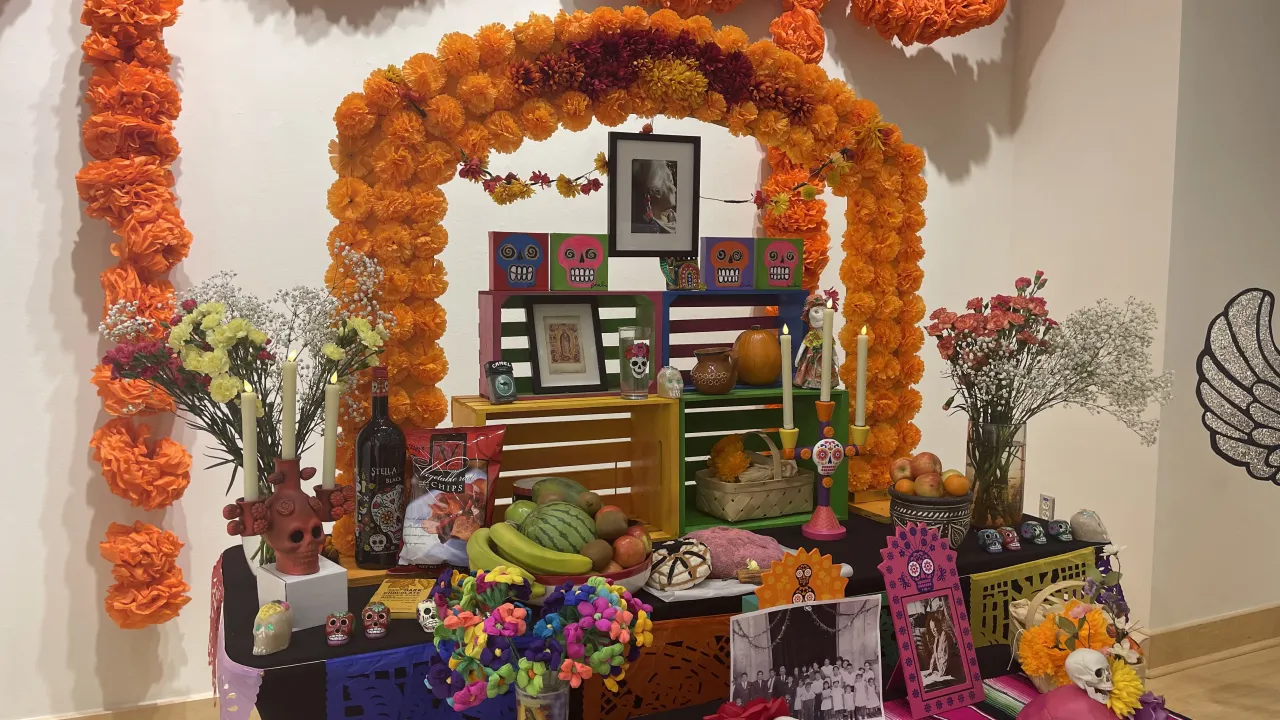By Wyatt Crosher, Communications Coordinator for Student Affairs
UNC Charlotte is celebrating Día de Muertos, or Day of the Dead, with a three-day event led by local artist Rosalia Torres-Weiner.
Starting Sunday, Oct. 30, students will begin building an Ofrenda in the Popp Martin Student Union (PMSU) Art Gallery. Ofrendas are elaborately decorated altars used to celebrate deceased loved ones during Día de Muertos.
Torres-Weiner will work with students the following Monday and Tuesday while also offering paper flower workshops and a program about the Ofrenda on Tuesday, Nov. 1.
The full schedule of events for Día de Muertos at Charlotte is as followed:
Sunday, Oct. 30
- Noon to 5 p.m. — Students can sign up to work with Torres-Weiner and begin building the Ofrenda
Monday, Oct. 31
- 9:30 a.m to noon — Students sign up to work with Torres-Weiner on Ofrenda
- 2- 5 p.m. — Paper Flower Workshop, music and snacks will be provided, no sign up required - drop by anytime between 2 and 5 p.m.
Tuesday, Nov. 1
- Noon to 5 p.m. — Students sign up to work with Torres-Weiner on Ofrenda
- 7 p.m. — Evening program with Torres-Weiner to talk about Ofrenda. Community members can come at this time to contribute to the Ofrenda, and music and snacks will be provided.
Community members can visit the PMSU Art Gallery and contribute photographs to remember a loved one from Tuesday evening through noon on Friday, Nov. 4. Those who contribute photographs to the Ofrenda can pick them up in the office of Identity, Equity, and Engagement (IEE) in Suite 252 of the Popp Martin Student Union anytime after noon on Nov. 4. Photographs will remain in IEE until retrieved.
Along with the events, students can also submit their own art celebrating their Latine and Hispanic identities and cultures to be displayed on the walls of the art gallery alongside the Ofrenda. Interested students can email Ryan McKeel at rmckeel1@uncc.edu for submission inquiries.
McKeel, the assistant director for leadership and community engagement in IEE, said Torres-Weiner offers students a unique view of art, and will be a welcome addition to Día de Muertos festivities on campus.
"Rosalia will tell you that she did not necessarily take the route of a classically trained artist, but rather her art is influenced by being born in Mexico and the culture and the art that she viewed and got to engage with while growing up,” McKeel said. “Her art is very colorful and often tells the stories of Mexican, Latinx and Hispanic folks in communities, and she can find a way to turn anything into art. Her art is truly for everybody."

Torres-Weiner has previously been to Charlotte’s campus, but is excited to return to help build the Ofrenda. As a self-described “artivist,” blending art and activism, she said art can be powerful, and is “not just to decorate walls.”
“I have used art to share the stories of our Latinx community, and at the same time, to educate people,” Torres-Weiner said. “Non-Latinos come to me about my art and say 'Wow, I didn't know this was happening in Charlotte.' And Latinos come to me and say 'Thank you for sharing our stories.' This is why I call it artivism, it's a very important part of my profession."
McKeel said this event is a great opportunity for the University to celebrate Latinx heritage for all students, staff and community members.
“We have a very large community of people who identify as Latine or Hispanic, and we also have a large Spanish-speaking community on campus,” McKeel said. “I think it's important that we recognize Día de Muertos because it falls so closely after Latinx and Hispanic Heritage Month (Sept. 15 - Oct. 15) when I think people can really talk about and center Latinx and Hispanic voices. It is important that we celebrate Latine and Hispanic voices all year long, not just during Hispanic Heritage Month.”
Along with all the visual art being put together for the Ofrenda, Torres-Weiner encouraged students coming to bring instruments to add to the overall celebration that makes Día de Muertos special.
“We go to the cemeteries and we decorate where our loved ones are buried, and we sing and eat right there,” Torres-Weiner said. “It's not a sad thing, it's beautiful, so if students want to come sing or bring their guitar, accordion, whatever they want, that would be great."






